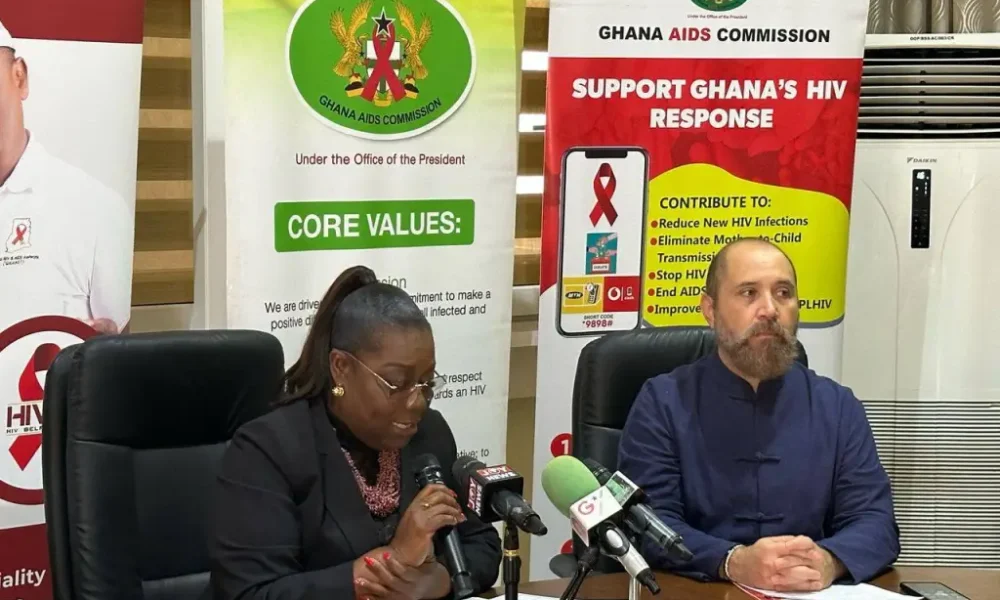By Accra Mail
Ghana has recorded 15,290 new HIV infections and 12,614 AIDS-related deaths in 2024 alone, according to newly released figures from the National and Sub-National HIV and AIDS Estimates and Projections.
The data, unveiled in Accra, paints a sobering picture of the epidemic’s persistence, revealing that women and girls remain disproportionately affected. Of the total new infections, 67.4%—some 10,303 cases—were among females, compared to 4,987 cases in males. Overall, 334,721 Ghanaians are currently living with HIV, including 229,261 females and 105,460 males. Alarmingly, children account for 5.4% of those living with the virus, amounting to 18,229 cases.
The projections show that on average, 42 new infections were recorded among children and adults every day in 2024.
Launching the report, Deputy Chief of Staff Nana Oye Bampoe Addo described the figures as a wake-up call. She underscored the urgent need to prioritise women and children in prevention and treatment efforts, citing the “feminisation” of the epidemic.
“With only 47 per cent of people living with HIV currently on antiretroviral therapy, it is evident that the country needs to double up its efforts in attaining the UNAIDS 95-95-95 targets,” she warned.
The UNAIDS 95-95-95 goals, which Ghana is striving to meet by 2025, call for 95% of people living with HIV to know their status, 95% of diagnosed individuals to be on antiretroviral treatment, and 95% of those on treatment to achieve viral suppression.
However, the 2024 data reveals significant gaps. Just 68% of people living with HIV know their status, 69% of those diagnosed are on treatment, and 90% of those on therapy have achieved viral suppression.
Despite these challenges, the lifesaving impact of antiretroviral therapy (ART) was also evident: an estimated 229 deaths were averted each week in 2024, preventing a total of 12,358 deaths for the year.
Ms. Bampoe Addo affirmed the government’s commitment to sustaining domestic funding for HIV services and integrating HIV priorities into broader health and development plans.
Acting Director General of the Ghana AIDS Commission, Dr. Kharmacelle Prosper Akanbong, called for collective action to tackle disparities across regions and vulnerable populations.
“The HIV epidemic continues to affect lives across the country, with some regions and vulnerable populations bearing a disproportionate burden,” Dr. Akanbong said. “Addressing these inequalities must remain at the heart of our response if we are to leave no one behind.”
Dr. Emmanuel Teviu, Acting Programme Manager of the National AIDS Control Programme, acknowledged progress in viral suppression among those on treatment but identified diagnosis and initiation of care as the greatest hurdles.
He advocated scaling up HIV self-testing as a way to close those gaps.
“Self-testing provides a discreet, convenient, and empowering option for individuals, particularly those who are difficult to reach through traditional facility-based services,” Dr. Teviu explained, adding that this approach could boost testing rates among men, young people, and marginalised groups.
The National and Sub-National HIV and AIDS Estimates and Projections, compiled annually, serve as a vital tool for shaping policies, allocating resources, and guiding Ghana’s strategy to end AIDS as a public health threat by 2030.
